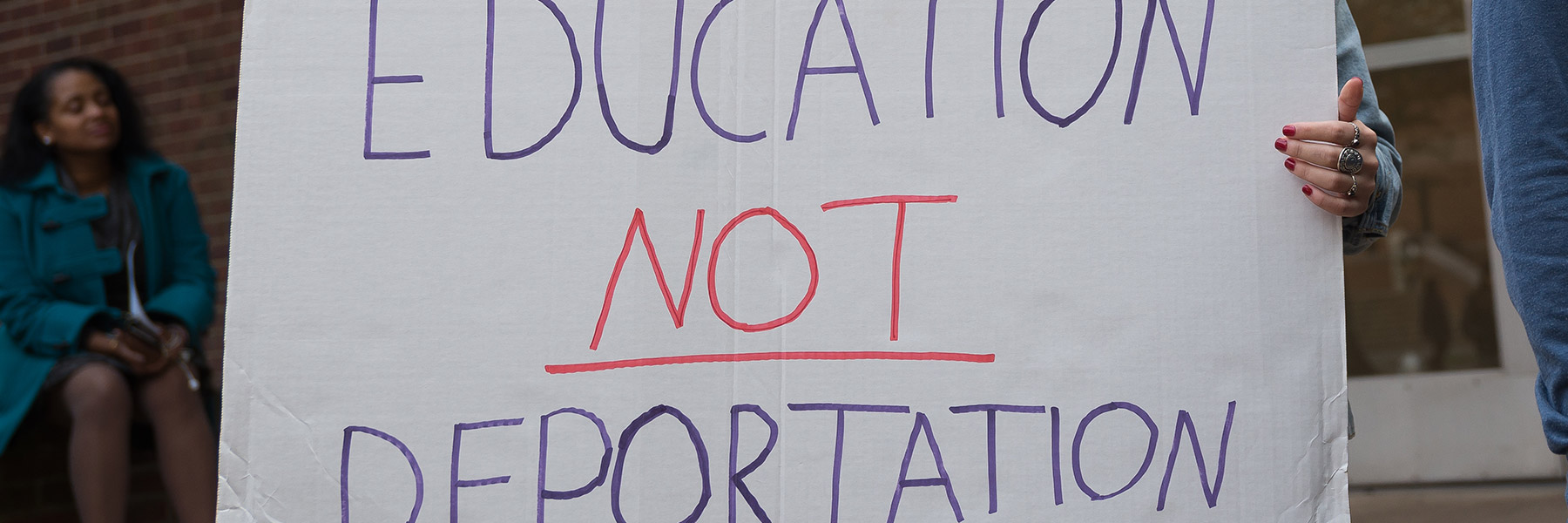
Resisting Trump’s Mass Deportation Agenda In the Streets and In the Courts
We will need a robust legal strategy and highly organized communities to stop the coming deportation regime.
December 22, 2016
The advent of the Trump administration has plunged many immigrant communities into uncertainty. While this moment is still surreal, we can say this: For decades, immigrants have put their bodies on the line—fasting, marching, taking arrest, speaking out publicly—to demand and win protections. Wherever Trump promises to inflict pain, immigrants and their allies can draw on this history to mount a powerful resistance.
First, Trump promises to deport as many as 3 million immigrants, saying he’ll target “criminals.” Experts estimate that there are far fewer than 3 million immigrants with criminal convictions, and many jurisdictions profile and target immigrants for traffic violations and other non-violent crimes.
Resisting mass deportations will require a robust legal response and highly organized communities. Trump can’t effect such a massive promise on day one—it will require the expansion of Obama’s already wide-reaching deportation and detention infrastructure and the suspension of due-process protections. Immigrant organizers have already launched “know your rights” trainings in communities nationwide. As the administration accelerates its attacks, it’s crucial to offer financial and logistical support to expand these efforts.
Second, Trump has threatened to eviscerate so-called sanctuary city policies by cutting off federal aid. Currently, more than 320 cities and four states limit local law enforcement’s cooperation with immigration authorities. Undoing these policies could lead to an uptick in racial profiling and arbitrary detention. It will also undermine law enforcement’s relationships with communities they are sworn to protect. Working as a young attorney in post-9/11 New York City, I had the honor of representing survivors of domestic violence. My Muslim clients, faced with nighttime round-ups, interrogations and profiling by law enforcement, were frequently distrustful of the authorities, even when they were desperate to protect themselves and their children.
Many immigrant rights’ groups have demanded that local political and religious leaders stand up to Trump’s threats and adopt or reaffirm sanctuary policies. We can all call on our cities, schools or places of worship to pledge support for immigrants and provide safety for those threatened by deportation.
Third, the Trump administration may target immigrants in the workplace by reinstating Bush-era worksite raids. Large-scale immigration raids terrorized workers, and in 2008, nearly destroyed the economy of the small town of Postville, Iowa. Many workers, fearing deportation, are afraid to stand up to their bosses, which intensifies the existing problems of wage theft, unsafe working conditions, trafficking and sexual violence faced by immigrants, particularly women.
That’s why worker centers, unions and other labor groups must pledge to stand by immigrant workers and redouble efforts to help them enforce their rights. Even as labor plays defense in a hostile climate, it must continue fighting to expand protections for vulnerable workers through measures such as domestic worker bills of rights, which set minimum wages and working conditions for domestic workers, regardless of immigration status, in the seven states where they have passed.
Finally, the fear and turmoil sowed by Trump’s policies could effectively silence the voices of those who have been critical in winning these protections in the first place. In response, we must lift up leadership within these targeted communities—particularly immigrant women of color and Muslim immigrants—ensuring that they are at the front lines of decision making and strategy development, and are supported in their ability to participate in direct actions and civil disobedience.
Now more than ever, we need to act to ensure that no voices are silenced. You can start by joining the January 14th Immigrant Rights Day of Action, a nationwide mobilization to resist xenophobic policies and assert immigrant rights, and the Million Women March on January 21. Will you join us? 
Sameera Hafiz is advocacy director at the National Domestic Workers Alliance.
How To Fight Hate Crimes and White Nationalism in Trump's America
by Bill Berkowitz
How Muslim Activists Are Organizing Against Islamophobia in the Face of President Trump
by Kalia Abiade
Resisting Trump’s Mass Deportation Agenda In the Streets and In the Courts
by Sameera Hafiz
Under Trump, Racial Justice Activists Must Seek Solutions Outside the State
by Asha Rosa Ransby-Sporn
The Only Way to Defeat Trump Is to Understand That Race and Class Are Inseparable
by Saqib Bhatti
Read the rest of this special series from the January 2017 issue of In These Times:
Want more stories on social movements and activism? Subscribe to the free In These Times weekly newsletter:
